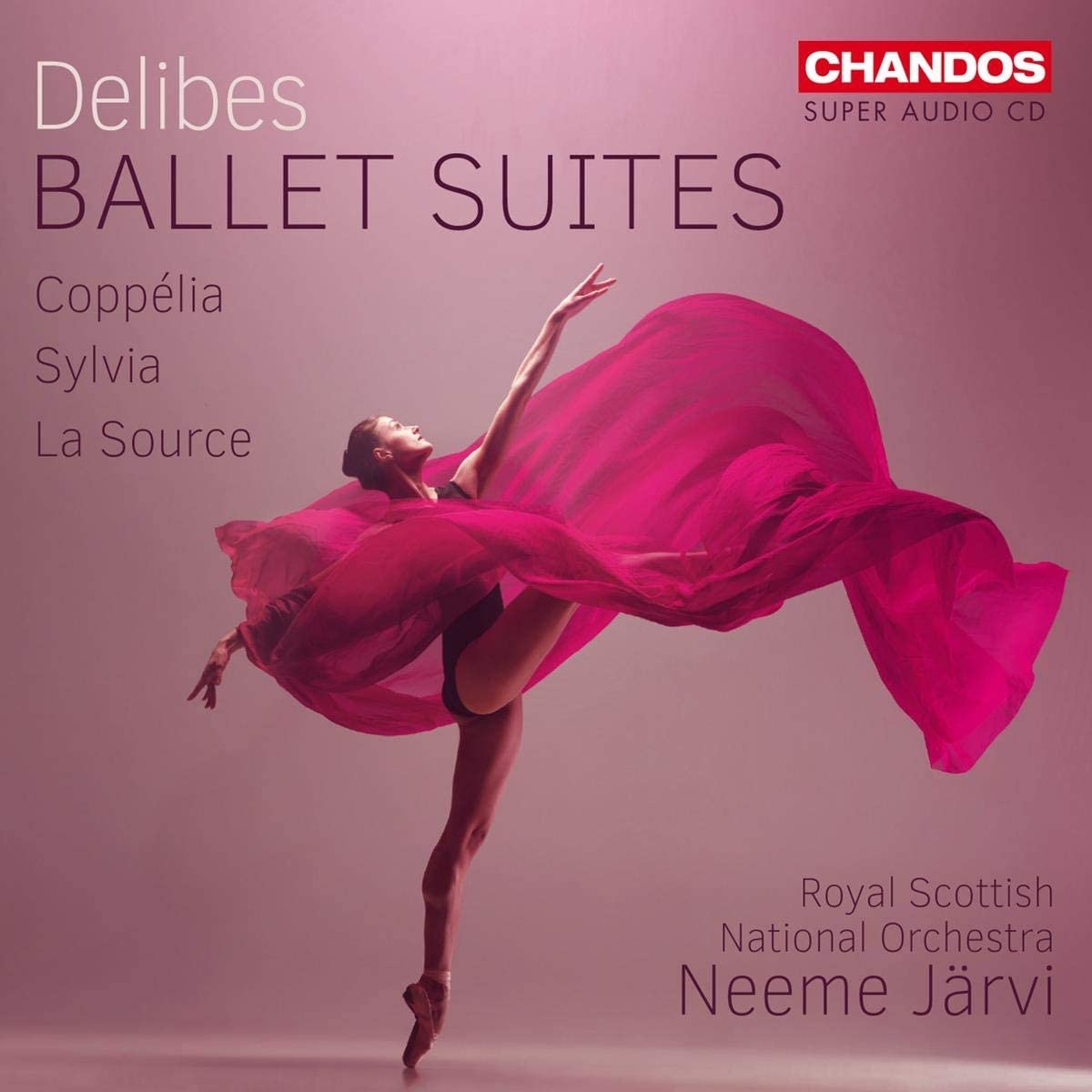DELIBES Balet Suites (Järvi)
View record and artist detailsRecord and Artist Details
Genre:
Orchestral
Label: Chandos
Magazine Review Date: 12/2020
Media Format: Super Audio CD
Media Runtime: 82
Mastering:
DDD
Catalogue Number: CHSA5257

Tracks:
| Composition | Artist Credit |
|---|---|
| Sylvia, Movement: Excerpts |
(Clément Philibert) Léo Delibes, Composer
Neeme Järvi, Conductor Royal Scottish National Orchestra |
| (La) Source, ou Naïla, Movement: Excerpts |
(Clément Philibert) Léo Delibes, Composer
Neeme Järvi, Conductor Royal Scottish National Orchestra |
| Coppélia, Movement: Excerpts |
(Clément Philibert) Léo Delibes, Composer
Neeme Järvi, Conductor Royal Scottish National Orchestra |
Author: Tim Ashley
‘Swan Lake is mere rubbish in comparison with Sylvia’, Tchaikovsky wrote to Nadezhda von Meck in 1877, having just heard Delibes’s ballet in Vienna. No one in their right mind would nowadays agree with him but his remark, though coloured, one suspects, by Swan Lake’s recent failure, is also a genuine acknowledgement of the French composer’s brilliance. Among the most inventive of 19th-century dance scores, La source (1866, co-written with Ludwig Minkus), Coppélia (1870) and Sylvia (1876) set new standards for ballet music, paving the way for much that came in their wake. Their popularity, that of Coppélia in particular, means we often overestimate both their originality and their importance.
Neeme Järvi and the Royal Scottish National Orchestral offer a generous selection from all three. The compilation of the suites is attributed to Järvi himself, though the extracts from Sylvia and Coppélia, roughly adhering to the outline of the ballet’s narratives, more or less follow the concert digests from Delibes’s lifetime, and which may or may not have been his own. Järvi’s suite from La source – to which Delibes contributed the second act and the first scene of the third – dispenses with the original ordering and narrative, a variant on the Ondine story, set in India, but proves remarkably effective in its own right.
Järvi’s affection for this music is very much apparent from the warmth with which he conducts it and the way he carefully emphasises the imaginative subtleties of Delibes’s orchestration. There’s refined passion as well as grandeur in the Sylvia pas de deux, its concertante violin solo exquisitely played by RSNO leader Sharon Roffman, while the climactic galop (the Snowflakes from Tchaikovsky’s Nutcracker, one notices, take their cue from the woodwind-writing here) has terrific élan. Järvi judges La source’s mix of orientalism and elegance wonderfully well, while the Slavonic local colour of Coppélia is beautifully brought out: the Mazurka has an infectious energy, while the ‘Thème slave varié’ – ringing changes on what Delibes thought was a folk song, but is actually by Moniuszko – is most engagingly done.
Some, I suspect, would prefer a slightly slower tempo and greater weight in the strings in the slow section of the Coppélia Czardas, though the lilt in the rhythm here is unquestionably beguiling. And Järvi’s slighty driven way with the Sylvia ‘Les Chasseresses’, exciting in itself, doesn’t quite achieve the proud exultation of Anatole Fistoulari in his LSO recording of the complete work (Mercury, 8/59). The RNSO are on fine form here, though, with some beautifully poised woodwind solos, clear, precise brass and a warm sheen in the strings, particularly in those expansive cello melodies of which Delibes was clearly fond. It’s a lovely album, and superbly recorded, too.
Discover the world's largest classical music catalogue with Presto Music.

Gramophone Digital Club
- Digital Edition
- Digital Archive
- Reviews Database
- Full website access
From £8.75 / month
Subscribe
Gramophone Full Club
- Print Edition
- Digital Edition
- Digital Archive
- Reviews Database
- Full website access
From £11.00 / month
Subscribe
If you are a library, university or other organisation that would be interested in an institutional subscription to Gramophone please click here for further information.




